AHA FIT Newsletter
Opening Message from AHA FIT Newsletter Editorial Board
 In early February, we enthusiastically started brainstorming the usual quarterly Spring Edition of our AHA Fellow-in-Training (FIT) newsletter - an initiative by the AHA for FITs, by FITs. However, the world around us started changing quickly. We witnessed our patients, families and colleagues, near and far, being affected by the raging spread of COVID-19. Through the AHA FIT platform, we were able to reach out to many of you and hear first-hand stories of bravery, innovation and hardship.
In early February, we enthusiastically started brainstorming the usual quarterly Spring Edition of our AHA Fellow-in-Training (FIT) newsletter - an initiative by the AHA for FITs, by FITs. However, the world around us started changing quickly. We witnessed our patients, families and colleagues, near and far, being affected by the raging spread of COVID-19. Through the AHA FIT platform, we were able to reach out to many of you and hear first-hand stories of bravery, innovation and hardship.
We have put forward this timely and relevant COVID-19 AHA FIT Newsletter issue, with the hopes of delivering the voices of our fellow FITs. This issue highlights FITs battling the COVID-19 pandemic from the frontlines in clinical care and exploring the resulting challenges and innovations in education, research and well-being. In this issue, you will also hear reflections and guidance from faculty leadership during this unprecedented time.
This AHA FIT newsletter edition is, perhaps, the closest to our hearts. It is from you and for you. We are here with you all.
- Anum, Beth, Jeff, and Nosheen
AHA FIT Newsletter Editorial Board
Interviews for this newsletter took place throughout March and April 2020. The COVID-19 climate is constantly evolving, so please be mindful that information may have changed between the initial interviews and newsletter release.
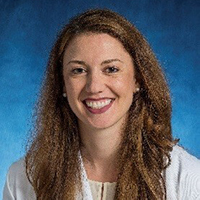
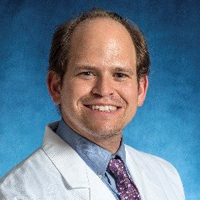

Have you or your FIT colleagues been directly involved in COVID-19 care cases? If yes, in what capacity? How does this make you feel and why?
Like many institutions, our medical intensive care units have rapidly filled with COVID-19 patients with overflow to other ICUs, including our Cardiac Care Unit and an area which was previously a medical ‘stepdown’ unit, now both purely COVID ICUs. To help staff and manage these additional ICUs our FIT colleagues have been recruited to act as ICU fellows to care for these patients. Similarly, the hospitalist workforce has required reinforcements and so our FIT colleagues previously credentialed as internists have been covering hospitalist services In general, Text Quote: Inpatient teams were skeletonized to preserve backup physicians and re-deploy them to other areas of the hospital that are in need for staffing and fellows.there are feelings of concern as well as responsibility and understanding of the immense learning opportunities as we all navigate these unchartered territories together.
How has your training thus far, in your opinion, prepared you for the COVID-19 related pandemic (from an education, clinical, personal/wellness, etc. standpoint)?
Our cardiology training has afforded us the opportunity to become very comfortable with critical care medicine. Several attending cardiologists are comfortable with critical care medicine and have provided our fellows with a balance of supervision and autonomy. We are also a field that values bedside hypothesis generation, data collection, evidence-based medicine, and eternal study of our patients to learn from new experiences.
Cardiology is a field that is driven by evidence, so COVID-19 has presented a new challenge for us. Our cardiology FITs (and faculty) are extremely motivated to find solutions and collaborate together. To accomplish this, almost immediately, our fellowship has created an impromptu task force to address the multiple challenges facing the department, led by our chief fellow. To prevent the spread of COVID-19 to outpatients, our fellows joined with faculty to help transition clinics to a telehealth model. Inpatient teams were skeletonized to preserve backup physicians and re-deploy them to other areas of the hospital that are in need for staffing and fellows. Our fellows joined forces with other division leaders to form an advocacy and outreach network so that trainee feedback can be heard during these major transitions.
We (Jacqueline, Carine and Daniel) teamed up to spearhead a communications effort and promote wellness by producing a 5-minute daily update in a ‘podcast’ style for the whole department that we share via Whatsapp, called ‘Hopkins Heart Daily.’
How are you and your colleagues maximizing education and training during this time?
All of us are using this time to re-acquaint ourselves with mechanical ventilation as well as critical care / internal medicine in general. We have all aspired to become COVID experts, of course, and disseminate literature to our department. Both Daniel and Carine are hosts on the CardioNerds podcast and along with their co-hosts, have prepared 10 episodes ranging from the ACE-I/ARB discussion revolving around COVID-19, a refresher on ARDS management with a cardiovascular twist on hemodynamic management in critically ill ventilated patients, interviews with front line physicians from Italy, Iran, and New York, a comprehensive mini-series with Text Quote: All of us are using this time to re-acquaint ourselves with mechanical ventilation as well as critical care / internal medicine in general. We have all aspired to become COVID expertsour infectious disease faculty on many aspects related to the virus. This is in addition to launching a YouTube COVID-19 lecture series that highlights popular lectures and talks given by FITs across multiple institutions.
Are there any wellness/preparedness initiatives that you have developed during these unprecedented and stressful times? Please explain.
We have had multiple wellness/preparedness initiatives amongst the fellows. Jacqueline created a unified WhatsApp group to communicate about things related to COVID-19, updates around the hospital, or share pictures of families/children. Jacqueline has also been coordinating Zoom ‘virtual happy hours/ hangouts’ amongst the cardiology fellows on a weekly basis.
We have launched a “Hopkins Heart Daily” podcast to distill key updates relevant to the division (faculty, fellows, allied health), featuring a short interview with leadership (physician in chief, division chair, chief of cardiac surgery, etc.). These interviews tend to be motivational and comforting as well as direct and transparent - all incredibly important for our dedicated work force during this unprecedented time. Each episode ends with a cheer provided by FITs children who are doing their part at home with regards to social distancing. We are excited to say that we have a growing list of >160 subscribers and receive lovely fan mail on a daily basis which keeps our hearts fluttering as we all move forward doing our best.

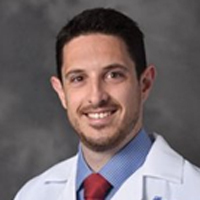
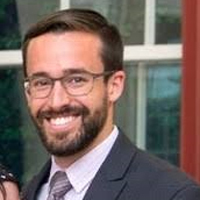
What are some ways that COVID-19 may affect your future clinical practice (can interpret this question many ways - how you approach medicine, your future clinical/research goals, use of telemedicine, etc.)?
Iyad: The current pandemic will forever change how society functions, and medicine will be at the forefront of these changes. With the COVID-19 outbreak, and in an effort to maximize social distancing and decrease the rate of exposure in patients and health care workers alike, our health system made a decision to defer all elective, non-urgent clinic visits and procedures. This brought about many challenges in my clinic. Text Quote: Just because I wasn?t going to the clinic, doesn?t mean my patients? heart failure or angina ceased to exist.Just because I wasn’t going to the clinic, doesn’t mean my patients’ heart failure or angina ceased to exist. Virtual visits have become our main method of outpatient care, whether in the form of telephone or video visits. Operationalizing this was challenging. In a short period of time, our department had to set up teams to contact patients and triage, install the digital infrastructure required, familiarize patients and physicians to its utilization, and finally figure out billing and reimbursement. It is unlikely that telemedicine will completely replace the traditional clinic visit given losing the ability to perform a proper physical examination and to connect with patients.
Alex: This pandemic has pushed me out of my shell. As the Chief Fellow I truly take the safety and education of my colleagues to heart (no pun intended). As our hospital plunged into the thick of things I advocated for change in policy regarding allowing providers to bring in personal PPE and supplied our inpatient fellows with reusable respirators. Additionally, as concerns arose regarding lost training in core Cardiovascular domains, I organized a statewide conference call with co-Chief Fellows, Program Directors and our Michigan FIT Council. The goal was to ensure no fellow would miss out on attaining desired COCATS levels that they had already stated as their objective, that no one would suffer a delayed graduation, and to help coordinate amongst the programs about what worked in terms of fellow redeployment to maintain maximal focus on patients with cardiovascular comorbidities. This advocacy push was a huge success and has led to more planned calls amongst the Chief Fellows and Program Directors to maintain open communication throughout the crisis. This leap into advocacy was not something I anticipated in my career but is something I have found satisfaction in over the last several weeks.
Did you/your program make specific arrangements for FIT in reducing personnel/changing flow per clinical rotations to prepare for this pandemic? Any other important changes within your hospital or fellowship related to surge planning/etc.?
Iyad: In COVID-19 hotspots, a large-scale redeployment of physicians is necessary to provide the critically needed patient care due to the COVID-19 crisis. ACGME recognized the pressures of the pandemic on teaching hospitals and enacted a new, 3 stage classification in response: Stage 1 “business as usual”, Stage 2 increased but manageable clinical demands, and Text Quote: At the end of the day, medicine is truly a calling and not just a profession and so many of our FITs are showing that on a daily basis.Stage 3 crossing a threshold beyond which the increase in volume and/or severity of illness creates an extraordinary circumstance where routine care education and delivery must be reconfigured to focus only on patient care. After careful evaluation, our Graduate Medical Education Committee declared a Stage 3 Pandemic Emergency Status on 3/25/2020.
What does that mean for FITs? It allows all training programs to pause formal education and deploy trainees to where there is the greatest clinical need; elective rotations are postponed; and some fellows can even have emergency staff credentialing granted to provide independent patient care. The front lines of emergency medicine, internal medicine and critical care are in dire need of help, and trainees from various specialties are stepping up to fill in the ranks. At the end of the day, medicine is truly a calling and not just a profession and so many of our FITs are showing that on a daily basis.
How does that translate to training requirements and duty hours? The American Board of Internal Medicine and American Board of Medical Specialties report they do not anticipate interruptions of training related to COVID-19 adversely affecting board eligibility for the vast majority of otherwise competent fellows. In the rare occurrence that it does; the trainee's program director and clinical competency committee individually tailor plans of action for FITs.
Alex: In addition to my colleague Iyad’s description, we have reduced our night float schedule to half-week blocks and added an extra in-house fellow to support our primary ICU rotator. This extra night fellow has proven essential due to the cumbersome nature of COVID-19 admissions and the extra time it takes to do procedures and don/doff all of the appropriate PPE.
Are there any wellness/preparedness initiatives that you have developed during these unprecedented and stressful times? Please explain.
Iyad: As I wake up and get ready for an overnight shift, I feel a sense of pride and duty that brings me to the hospital to my redeployed role. Nothing surpasses the feeling of appreciation provided by inpatients to health care workers during these difficult times. However, when caring for COVID-19 patients, one can go from feeling needed to helpless very quickly. Their decompensation is rapid, sudden and many times unexpected. The refractoriness of the illness can really get to me. After a shift, I usually can’t wait to get home to collapse on the couch. Now I find myself constantly obsessing over bringing the infection home and transmitting it to my significant other. I find myself worrying about my parents and brothers who are also physicians. Being surrounded by COVID-19 headlines, emails and reading material adds to these stressful times along with the added component of daily clinical demand changes. Text Quote: As I wake up and get ready for an overnight shift, I feel a sense of pride and duty that brings me to the hospital to my redeployed role.Personal protective equipment? That of course is a well-known anxiety-provoker as well. It is imperative that we have system-wide initiatives and resources to help us cope in these stressful times. We have received multiple virtual resources all comprised of evidence-based tools which have been very helpful in relieving stress. A COVID Employee Emotional Support Hotline has been set up consisting of mental health professionals that are available 24/7.
To me personally, limiting the use of social media has been instrumental in maintaining my sanity. Runs or walks are done with the phone left at home to create some space and separation.
Have you or your FIT colleagues been directly involved in COVID-19 care cases? If yes, in what capacity? How does this make you feel and why?
Alejandro: Yes, our cardiovascular ICU has turned into a COVID unit, with only a few patients with a primary cardiovascular problem, the majority being COVID-19 positive patients with respiratory failure requiring intubation. Initially, one can feel overwhelmed and in doubt, as managing these patients was out of our scope of daily practice, but hospital guidelines and staff support have helped us to refresh this skillset and stay up to date with COVID-19 best practices.
How are you and your colleagues maximizing education and training during this time?
Alejandro: Our program now provides a weekly schedule with remote conferencing. Also, a lot of my current education is focused on COVID-19, as we can see with daily publications in this topic in major journals.

Have you or your FIT/EC colleagues been directly involved in COVID19 care cases? If yes, in what capacity?
Yes. Directly involved in the care of critically ill patients in our COVID ICU's.
What is the one way that the advent of COVID-19 may affect your future clinical practice?
I have become more familiar with telehealth and realized how much this tool is underutilized in our current practice. Most ambulatory clinic visits for stable patients can be triaged to Telemedicine. This holds true both for refills and medication compliance reinforcement, which can also avoid ED visits.
Did you/your program make specific arrangements for FIT in reducing personnel/changing flow per clinical rotations to prepare for this pandemic?
The program worked to make arrangements for PPE. Often it was limited, and reuse of PPE was suggested.
Finally, are there any wellness/preparedness initiatives that you have strategized during these unprecedented and stressful times as a program or? Please explain.
What would ideally have been the best strategy to mitigate stress during this pandemic, is also the approach most discouraged: staying close to family and relying on them for support. Exercise and, surprisingly, group meditation (arranged by the program) has helped. Moderate/limited exercise at home between work has helped too. Staying in touch with family on FaceTime has been crucial as well.


What are some ways that COVID-19 may affect your future clinical practice?
In light of the COVID-19 pandemic, we have had a rapid paradigm shift in how we care for our patients. Over the last three-week period, we have seen changes that would normally take months or years to integrate into practice. For instance, we have gone mainstream with a previously piloted, small, inpatient electronic consult program. We believe that this program is allowing us to safely answer many clinical consultation questions while simultaneously limiting physical exposure as well as the clinical demands on FITs. Virtual outpatient visits are ramping up allowing for interaction with a patient visually, which in contrast to a telephone visit, better simulates in-office care. Patients have expressed their gratitude for allowing them to avoid the risks of coming to the hospital/office, and for the convenience of efficiency. Ultimately, we believe that this “stress test” will yield a demand for an increase of these virtual practices in our future.
How are you and your colleagues maximizing education and training during this time?
Though our weekly didactic conferences have been cancelled, our education certainly has not decelerated. Our program is very generous in granting all FITs free access to Mayo Clinic’s Knowledge to Practice (K2P) as well as the latest ACCSAP. We have provided structure by assembling a detailed curriculum and have assigned daily videos to engage our FITs. Topic-related ACCSAP questions are then sent out the following week by a chief fellow for self-assessment. We have adopted Zoom and Microsoft Teams not only for meetings, but also for attending and fellow directed lectures and case presentations. Despite a tough time to practice clinical medicine, our program has still fostered a strong educational environment..
Are there any wellness/preparedness initiatives that you have developed during these unprecedented and stressful times? Please explain.
Our program director shared with us two great wellness resources during this stressful time: Headspace and Ten Percent. Both of these are free for health care providers. As FITs, we also rely heavily on each other both for information and to discuss our concerns. We have a very active GroupMe chat among our FITs. Along the same lines, we are gathering together weekly for a fellowship program 'virtual happy hour' via the Zoom application. Knowing that you are not alone in this endeavor is paramount for both wellness and resilience.


Have you or your FIT/EC colleagues been directly involved in COVID19 care cases? If yes, in what capacity?
Yes. Firstly, we are involved in the assessment of patients presenting with COVID-19 symptoms, chest tightness and ischemic ECG changes to determine the need for emergent coronary angiography. Secondly, we provide specialist input in the care of deteriorating COVID-19-suspected patients requiring mixed shock and cardiomyopathy management.
What are some of the COVID-19 specific cardiac manifestations you and/or your FIT/EC colleagues have seen?
To date we have seen a possible STEMI in the context of COVID-19. The patient presented with fever, breathlessness and chest tightness. Bloodwork showed lymphopenia and raised troponin. On their initial ECG there was gross ST elevation diagnostic of anterior STEMI. The chest radiograph showed bilateral lung infiltrates. Echocardiography revealed apical akinesis. A number of patients have described pericarditis-like symptoms as well.
Did you/your program make specific arrangements for FIT in reducing personnel/changing flow per clinical rotations to prepare for this pandemic?
Yes, clinical rotations were put on hold and the Cardiology fellow roster has changed completely to prioritize care delivery for general medicine patients with suspected or confirmed COVID-19. Senior trainees have retained procedural sessions to provide assistance to Attendings where feasible.
How are you combining research efforts, if at all, during this time?
I (AC) have just finished a period of self-isolation as a family member was symptomatic of COVID-19 (home for 14 days). This has enabled me to progress some research during this time. At present, we are not recruiting to any of our ongoing clinical trials, and all efforts are focused on the care of patients with COVID-19. It is likely that I will transition my academic sessions to clinical to provide additional support to colleagues and PhD fellows I am supervising.
Finally, are there any wellness/preparedness initiatives that you have strategized during these unprecedented and stressful times as a program or? Please explain.
A weekly cash allowance has been granted for the Cardiology Fellows and residents to improve working conditions and morale. To date, we have purchased a Nespresso machine for communal staff use!
Karachi, Pakistan (institution omitted at request of author)
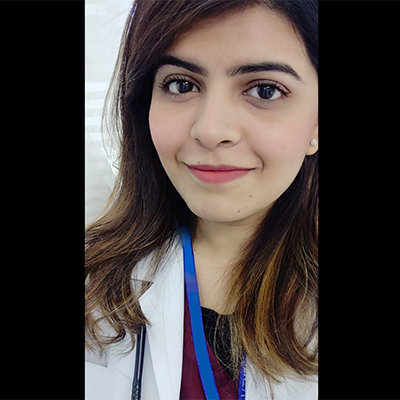
Have you or your colleagues been directly involved in COVID-19 care cases? If yes, in what capacity? How does this make you feel and why?
We have come in contact with COVID cases and are in desperate need of appropriate PPE for frontline healthcare professionals in Pakistan, a major cause for concern.
Due to limited resources and chronic lack of ventilators, we are forced to make very difficult decisions when it comes to prioritizing patients considering the constrained supply of resources available to us.
We do not have enough healthcare workers to cope with the current situation and I am deeply troubled about what will happen in the coming weeks when we hit the anticipated stage 3 of the pandemic.
What are some ways that COVID-19 may affect your future clinical (can interpret this question many ways - how you approach medicine, your future clinical/research goals, use of telemedicine, etc.)?
Telemedicine has played a largely vital role during this pandemic. Our leading telemedicine providers in Pakistan, such as doctHERS, have been educating the public via digital platforms as well as providing real-time remote doctor-patient consultations.
Did you/your program make specific arrangements for FIT in reducing personnel/changing flow per clinical rotations to prepare for this pandemic? Any other important changes within your hospital or fellowship related to surge planning/etc.?
We have increased our shift duration, from 7 hours a day to 12 hours, on every alternate day in order to minimize personal risk and patient exposure. We only have the required staff in hospital and are working on a skeleton staffing Protocol. We are provided with on-site campus accommodation and have been instructed to stay there until the pandemic is controlled, so we can limit the risk of exposing our family members in case we are carrying the virus.
Are there any wellness/preparedness initiatives that you have developed during these unprecedented and stressful times? Please explain.
When you are working in such pressured settings, you unfortunately do not have the time to think of your own mental well-being.

What initiatives do you suggest to trainees/mentees to ensure wellness/ research productivity as a response to these unprecedented times?
Indeed, I have been concerned about fellow research productivity since so many clinical research activities have come to a halt now, and fellows have a tight timeline to get their projects accomplished before their end of the fellowship. This impacts their job hiring and the preliminary data they need to get career development grants. These delays due to the COVID-19 crisis derail the timeline for fellows, and early and mid career faculty alike by delaying progress along career and promotional tracks. However with every lemon, there is some lemonade to be made. This crisis also opens up new opportunities for research, and indeed our fellows at Hopkins (and in other programs) have initiated COVID-related research that they wouldn’t have done before. There has never been a more important time for networking and collaborating across institutions and across disciplines. I actually feel the pulse and impetus for innovative research has never been hotter. We are truly all in this together and that absolutely means the Trainees who have never played a more important role in Medicine than they do right now.

What are 3 of the most challenging aspects you're facing as program director of a large training program in the face of COVID-19 compared to usual?
First, making sure that the fellows stay social connected while everyone is practicing social distancing. Second, making sure that the fellowship program is able to maintain high quality academic conferences. Lastly, providing procedural competencies to the fellows.
What words of wisdom would you like to share to trainees who are trying to balance becoming the best cardiologist they can be while mastering COVID-19 at the front lines?
Although understandably, this has been a tough time, try to look for positives in this situation. The training in crisis management you receive in these times is priceless and will definitely make you more resilient. Make good use of this time if the procedural volumes have gone down. This time will not come back. Use this time wisely to prepare for board exams (general cardiology, echo, specialty boards). For those doing research, this is a wonderful time to catch up on research projects and take them to completion. Stay connected with your peers and family. It is absolutely critical to maintain social connections to avoid feelings of isolation.
How do you think training in a post COVID-19 era might be different and what are some areas that COVID-19 has highlighted that graduate medical education must improve upon?
To two biggest things we have learned as a program are: 1. Resilience in challenging times and 2. How to leverage technology for fellow education.
I do think that we will see that the comfort level of most programs using technology for fellow education will go up exponentially as a result of this pandemic. I am also expecting that we will see very many innovative models.
What are 3 of the most challenging aspects you're facing as a researcher and what strategies have you used to continue productivity in the face of COVID-19 compared to usual?
One, not being able to meet mentees in person on a regular basis. There is something about meeting them in person. Second, since some of the research staff are also off-site, it can sometimes be difficult to get the analyses done remotely for pending manuscripts. Finally, some of the time from research can be taken up by understandable pressing needs related to clinical work and administration.
What are some of the (if any) resilience strategies that you think have worked that you suggest to research mentees/fellows in general?
Do remember that this pandemic will not last forever. These times do provide opportunities to rethink how things are going and reassess clinical and research goals. If you have extra space because the meetings have been cancelled, make every minute of that count. Make sure you maintain your writing habits.
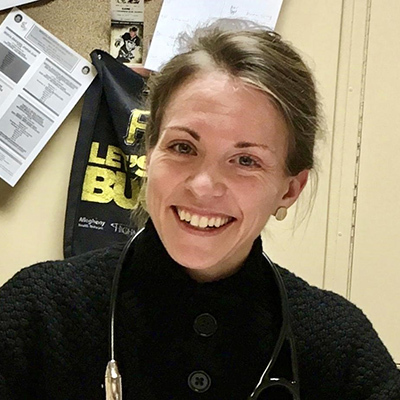
AHAFITS News COVID Edition
Global Health Policy During COVID
Upcoming AHA Conferences
| Conference | Date | Location | Key Dates |
|---|---|---|---|
| Scientific Sessions 2020 | Nov. 13–17, 2020 | Virtual Event | Registration open now! |
| Resuscitation Science Symposium 2020 | Nov. 14–16, 2020 | Virtual Event | Registration open now! |
| International Stroke Conference 2021 | Feb. 9–12, 2021 | Denver, Colo. | Registration opens: Oct. 14, 2020 |
| EPI | Lifestyle 2021 | March 2–5, 2021 | Chicago, Ill. | Abstracts Submission: Aug. 5–Oct. 14, 2020 Registration opens: Oct. 14, 2020 |
| Vascular Discovery: From Genes to Medicine 2021 | Date: To be announced | Location: To be announced | Abstracts Submission: To be announced |
| QCOR 2021 | Date: To be announced | Location: To be announced | Abstracts Submission: To be announced |
| BCVS 2021 | Date: To be announced | Location: To be announced | Abstracts Submission: To be announced |
| Hypertension 2021 | Date: To be announced | Location: To be announced | Abstracts Submission: To be announced |